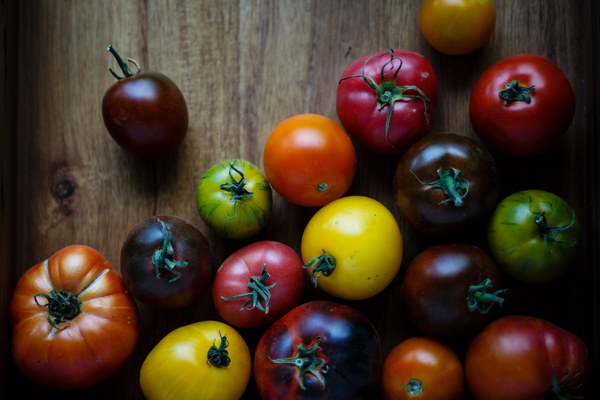The Ancient Elixirs Exploring the Healing Power of Tonifying Herbal Roots
In the realm of traditional medicine, tonifying herbal roots have long been revered for their potent healing properties. These roots, deeply rooted in the soil, carry with them the wisdom of ancient civilizations and the promise of rejuvenation. This article delves into the world of tonifying herbal roots, exploring their historical significance, therapeutic benefits, and how they continue to be a cornerstone of holistic wellness today.
The Historical Significance of Tonifying Herbal Roots
The use of tonifying herbal roots dates back thousands of years, with evidence suggesting that they were utilized by early civilizations such as the Chinese, Egyptians, and Greeks. In Chinese medicine, for instance, tonifying herbs are a vital component of treatment, aimed at strengthening the body's constitution and promoting longevity. The term tonifying refers to the process of nourishing and fortifying the body's vital energies, or Qi, to restore balance and prevent disease.
Key Tonifying Herbal Roots
Among the myriad of tonifying herbal roots, several stand out for their unique properties and widespread use:
1. Ginseng (Panax ginseng): Known as the king of herbs, ginseng is perhaps the most renowned tonifying root. It is believed to enhance energy, improve memory, and support the immune system. In traditional Chinese medicine, ginseng is used to boost the body's resistance to stress and fatigue.
2. Schisandra (Schisandra chinensis): This root is prized for its adaptogenic properties, helping the body cope with stress. It is also renowned for its ability to nourish the liver, support the respiratory system, and improve sleep quality.
3. Astragalus (Astragalus membranaceus): Known for its immune-boosting properties, astragalus is used to enhance the body's defense against illness. It is often combined with other tonifying herbs to strengthen the overall immune response.
4. Codonopsis (Codonopsis pilosula): Similar to ginseng, codonopsis is a popular tonifying herb in traditional Chinese medicine. It is believed to strengthen the lungs, improve energy levels, and enhance the immune system.
Therapeutic Benefits of Tonifying Herbal Roots
The therapeutic benefits of tonifying herbal roots are numerous and varied. Here are some of the key advantages:
- Enhanced Immune System: Many tonifying roots, such as astragalus and codonopsis, are known for their immune-boosting properties, helping the body fight off infections and diseases.

- Increased Energy and Vitality: Ginseng and other tonifying roots are often used to combat fatigue and increase energy levels, making them a popular choice for those looking to boost their overall well-being.
- Stress Reduction: Herbs like schisandra are known to be adaptogens, helping the body adapt to stress and promoting a sense of calm and balance.
- Improved Digestion: Certain tonifying roots, such as codonopsis, are believed to support the digestive system, helping to improve nutrient absorption and alleviate gastrointestinal issues.
- Longevity and Anti-Aging: The use of tonifying herbal roots is often associated with increased longevity and a slower aging process, as they help to maintain the body's balance and strength.
Modern Applications and Considerations
In modern times, the use of tonifying herbal roots has expanded beyond traditional medicine to include wellness and alternative health practices. While the scientific evidence supporting their efficacy is growing, it is important to approach the use of these herbs with caution and consult with a healthcare professional, especially when considering long-term use or combining them with other medications.
In conclusion, tonifying herbal roots are a testament to the ancient wisdom of traditional medicine. With their myriad of benefits and their continued relevance in modern health and wellness practices, these roots remain a vital resource for those seeking to enhance their overall well-being and live a longer, healthier life.









